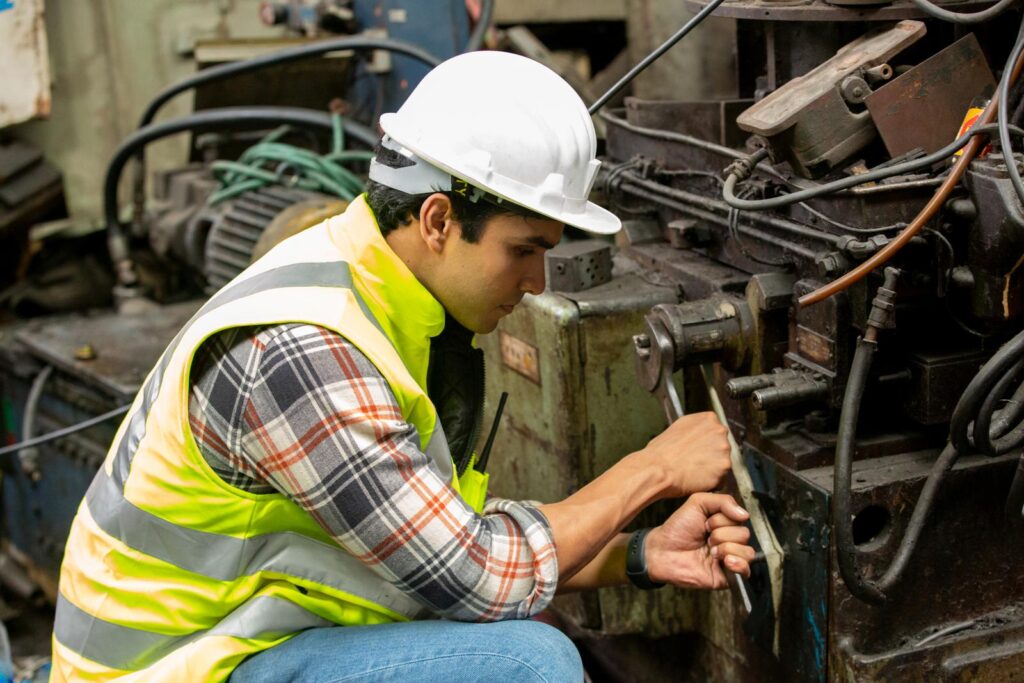Let’s talk about your dream project.
Schedule a free consultation now
When choosing the best air slide fabric, fabric construction plays a key role in determining the strength and durability of the fabric. Generally, air slide fabrics can be made from synthetic or natural fibres or a combination. Synthetic fibres such as polyester, nylon, and acrylic provide excellent tensile strength, durability, and resistance to high temperatures, while natural fibres such as cotton offer better breathability and absorbency. Blended fabrics are also popular, combining the advantages of both synthetic and natural fibres.
When it comes to weaving, the most common pattern for air slide fabrics is twill, which provides a strong yet flexible fabric. Denier is another important factor, as it directly affects the thickness and weight of the fabric. A higher denier means a thicker and heavier fabric, which is more durable and resistant to wear and tear.
When choosing an air slide fabric for your operation, it is important to consider its abrasion resistance. A fabric’s abrasion resistance is its ability to withstand wear and tear, such as that caused by impact and friction. Abrasion-resistant fabrics are often engineered to last longer than non-abrasion-resistant fabrics, which can reduce your need for premature repairs or replacements. Therefore, when selecting a fabric for your air slide, find one constructed with abrasion-resistant fibres.
When selecting air slide fabric, it is important to consider its temperature resistance. Depending on the application, fabrics should have the ability to resist maximum and minimum temperatures. In some cases, fabrics may need to resist high temperatures for extended periods. Also, fabrics should be flame resistant to protect against fire hazards.
Air slide fabrics should be able to maintain their integrity at a wide range of temperatures. This can include withstanding extreme cold and heat. It is important to ensure the fabric can withstand temperatures higher than those in the application, as this will ensure the fabric’s longevity. Additionally, fabrics should be able to resist heat and flame to guard against any fire hazards. By considering the temperature resistance of your fabric, you can ensure your operation is running safely and efficiently.
When selecting an air slide fabric for your operation, it is important to consider its resistance to moisture and humidity. This is especially true if the application requires the fabric to be exposed to wet conditions. Wettability is an important factor to consider when evaluating a fabric’s moisture resistance. Wettability is the ability of a fabric to allow water to penetrate its surface. Water repellency is also a component of moisture resistance and is the degree to which a fabric is resistant to water penetration. Fabrics with higher water repellency are less likely to absorb moisture and more likely to be more resistant to wet conditions.
When selecting an air slide fabric, evaluating its resistance to chemicals, acids, alkalis, and other solvents is important. The chosen fabric should withstand staining and corrosion and have good water repellency. Air slide fabrics should also resist moisture and humidity and have good wettability.
It’s important to consider the type of environment in which the air slide fabric will be used and the chemicals it may come into contact with. It’s best to test the fabric’s compatibility with any chemicals it may come into contact with. This will help ensure the fabric can withstand all liquids and solvents necessary for operations. Careful evaluation of the fabric’s ability to resist chemical agents is essential for long-term use and maintenance of the air slide fabric.
When selecting an air slide (fluidising) fabric for your operation, there are many factors to consider. From fabric construction and abrasion resistance to temperature and chemical resistance, the right fabric should offer great performance and a cost-effective solution. Ultimately, the best air slide fabric for your operation should balance quality with the total cost of ownership. By understanding the key factors of air slide fabric selection, you can make an informed decision when choosing the right fabric for your needs.

Air slides are an ingenious technology that is crucial in many industries. They are used to convey bulk materials, such as powders and granular substances, in a
Learn more
In every industry, maintaining operational efficiency and extending the life span of equipment are critical considerations. With its complex machinery and demanding
Learn more
Filter bags play a crucial role in various industries by ensuring efficient air filtration and dust collection. However, when faced with extreme dust challenges,
Learn more